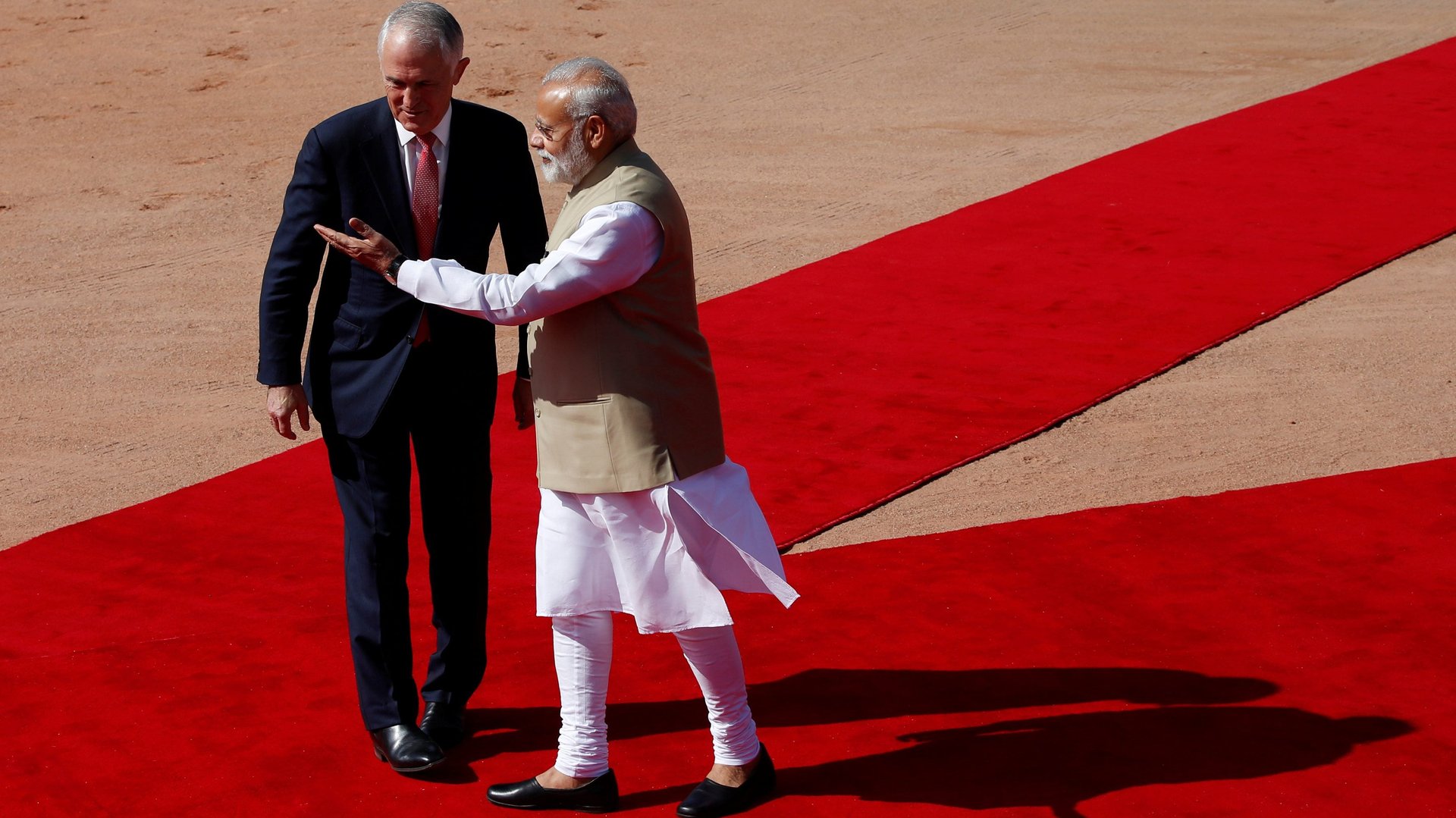Australia’s new visa rules will hit Indians the hardest
Australia is making it hard for Indian professionals to work in the country.


Australia is making it hard for Indian professionals to work in the country.
On March 18, the Australian government abolished the 457 visa category that allowed employers to sponsor skilled foreign talent to work in the country for up to four years. This category has now been replaced with the harder-to-get Temporary Skill Shortage (TSS) visa that lets overseas workers be brought in on a temporary basis.
The move will affect over 90,000 immigrant workers, with an outsized impact on Indians who accounted for more than one in five 457 visas granted as of Sept. 30, 2017.
While the 457 visa was used by professionals in all fields, most Indians using it work in the IT sector, accounting for 16% of the over 100,000 such visas issued by Australia in 2015-16.
The process to shut down the 457 visa was set in motion months ago. “We’re putting jobs first. We’re putting Australians first,” prime minister Malcolm Turnbull had announced in a Facebook video on April 18. “We will no longer allow 457 visas to be passports to jobs that could and should go to Australians.”
The Australian government has also made the qualifying criteria for the TSS more stringent. For instance, of the 650-odd occupations that were eligible for the skilled worker migrant visa, over 200 were dropped with the abolishing of the 457 visa.
Now, not only do TSS visa applicants need to have two years of relevant experience and fluency in the English language, among other things, Australia will also mandate labour market testing to ensure that locals get a fair deal. This requires employers to first try and find an Australian citizen or permanent resident for a job, and only bring in foreign talent when there is no local talent available.
Meanwhile, for the 457 visa aspirants, the eventual prospect of acquiring citizenship had been crucial. In a 2013 survey, over 70% of holders of this visa category had said that they planned to apply for citizenship.
However, this recent change now makes getting citizenship much harder. Under the TSS visa category, those who get the visa for four years are eligible to apply for permanent residency (PR) after three years in the country. However, those who get the TSS for two years can renew their visa only once and have no provision for PR.